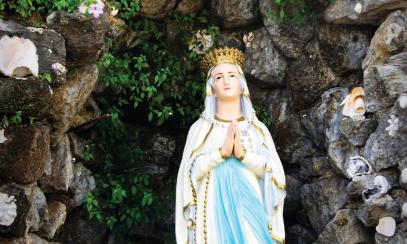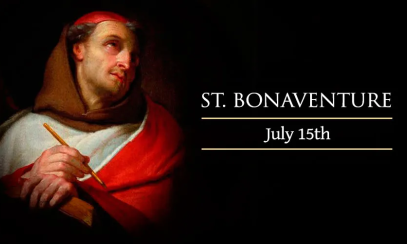
Journeys of the Soul
Our relationship with God is dynamic. It is variously described as, growth in holiness, spiritual development, living a Gospel life, putting on Christ. This evolving relationship with God is often expressed as a journey. Our Christian tradition has various ways of imaging the journey. Here are a few of the images:
Across a desert
The starkness of a desert captures times in life when we may be in transition. Our normal resources and strengths are failing us. The landscape of our life seems barren. But the starkness of desert allows for clarity. Silence and solitude can be conditions for listening to our life, and to God, more deeply. The usual distractions are eliminated. Insights and possibilities may shimmer in the distance. This journey requires patient endurance. The desert, tended, may become a garden. The Jewish people moved from slavery to freedom through a desert.
Up a mountain
In this image, God is living on the heights. We are beginning in the foothills. The ascent to God appears challenging and perhaps arduous. The safety of the ground and known features of life are left behind. What seemed non-negotiable in life begins to fade in importance. We now have a different perspective.
Trappist monk, Thomas Merton, imaged his conversion and vocation as an ascent up a “seven storey mountain.” He was referring to the mountain of purgatory in Dante’s Divine Comedy. It is an inner mountain climbed by penitents. Merton wrote, “…There is only one vocation. Whether you teach or live in the cloister or nurse the sick, whether you are in religion or out of it, married or single, no matter who you are or what you are, you are called to the summit of perfection; you are called to a deep interior life… ” (The Seven Storey Mountain).
Through a dark night
Sometimes called the “apophatic way,” or the way of unknowing. This image captures the hiddenness of God, and the lack of clarity in our journey of faith. We are unable to find our way by ourselves.
Although apparently referring to a difficult time in life, the dark night metaphor in the Christian tradition actually expresses a positive experience of God whose love is obscure to us. “The brighter the light, the more the owl is blinded,” wrote Saint John of the Cross. Losing all visible signposts along the way, the pilgrim learns to journey with absolute trust in a night that becomes a better guide than day.
Along a little way
A path called “a little way” is associated with the Little Flower, St. Thérèse of Lisieux. It can mean doing small things with great love; but it can also mean doing whatever we do, whether big or small, with absolute trust in a merciful God. It is a way of humility and simplicity.
Thérèse was convinced that God was not looking for people to punish, but for people who will open their lives to God’s transforming love. To her sister, Marie, who complained she did not have the deep desires Thérèse had, the saint responded, “…The weaker one is, without desires or virtues, the more suited one is for the workings of this consuming and transforming love. …It is confidence and nothing but confidence that must lead us to love” (Letters).
Toward an awakening
Perhaps a particularly apt image for our spiritual journey is an “awakening.” God is not distant; God has gone nowhere. God is a transcendent Presence always in our lives. It is a matter of not hiding in our lives, but being available to God, allowing God to find us.
Jesus met the Samaritan woman at the well without preconditions. He accepted her and her past. She testified, “He told me everything I have done” (John 4:39). Similarly, the Lord meets us and accepts us where we are in our lives. In that realization we begin to “awaken” to a mercy and love that has always been present.
A basic pattern
The Paschal Mystery refers to the salvific Life-Death-Resurrection of the Lord. In all of our journeys, that sequence of life-giving way to a dying which leads to renewed life is the recurring pattern. It is through our inevitable crosses, lived in faith, that we enter into the experience of resurrection. With God’s help, we learn to let go and live in trust. Pope Francis reminds us: “Life grows by being given away…” (The Joy of the Gospel).


